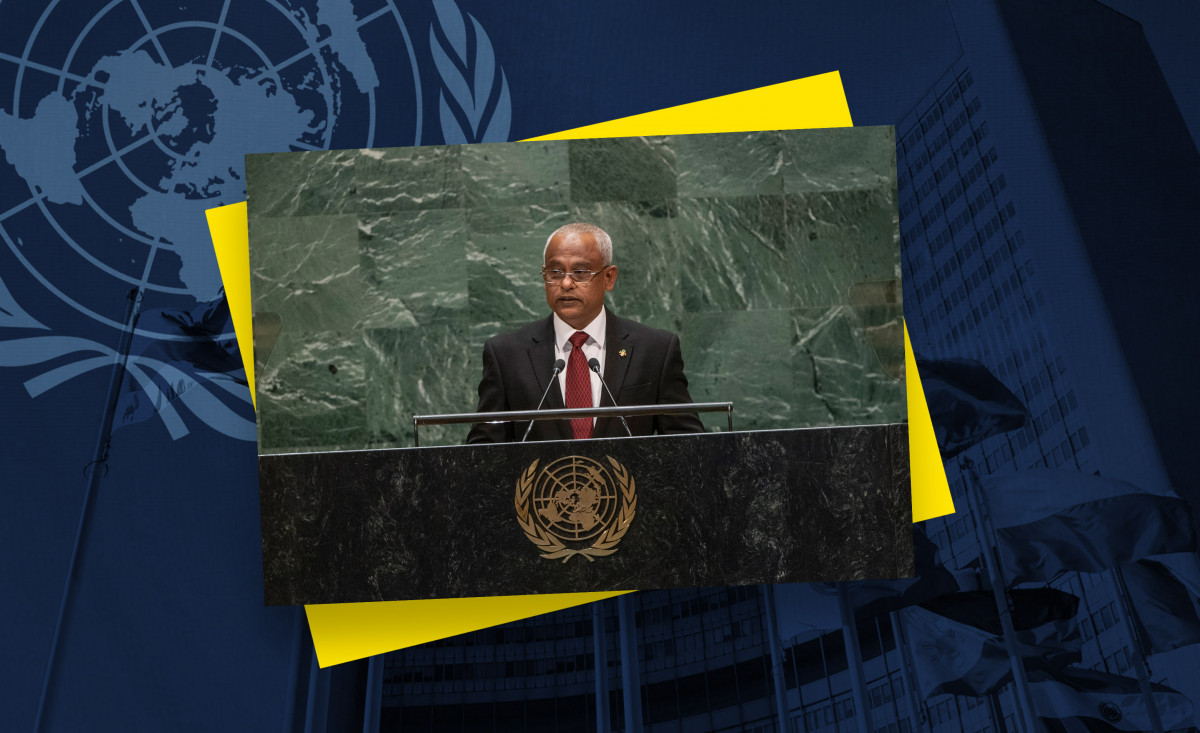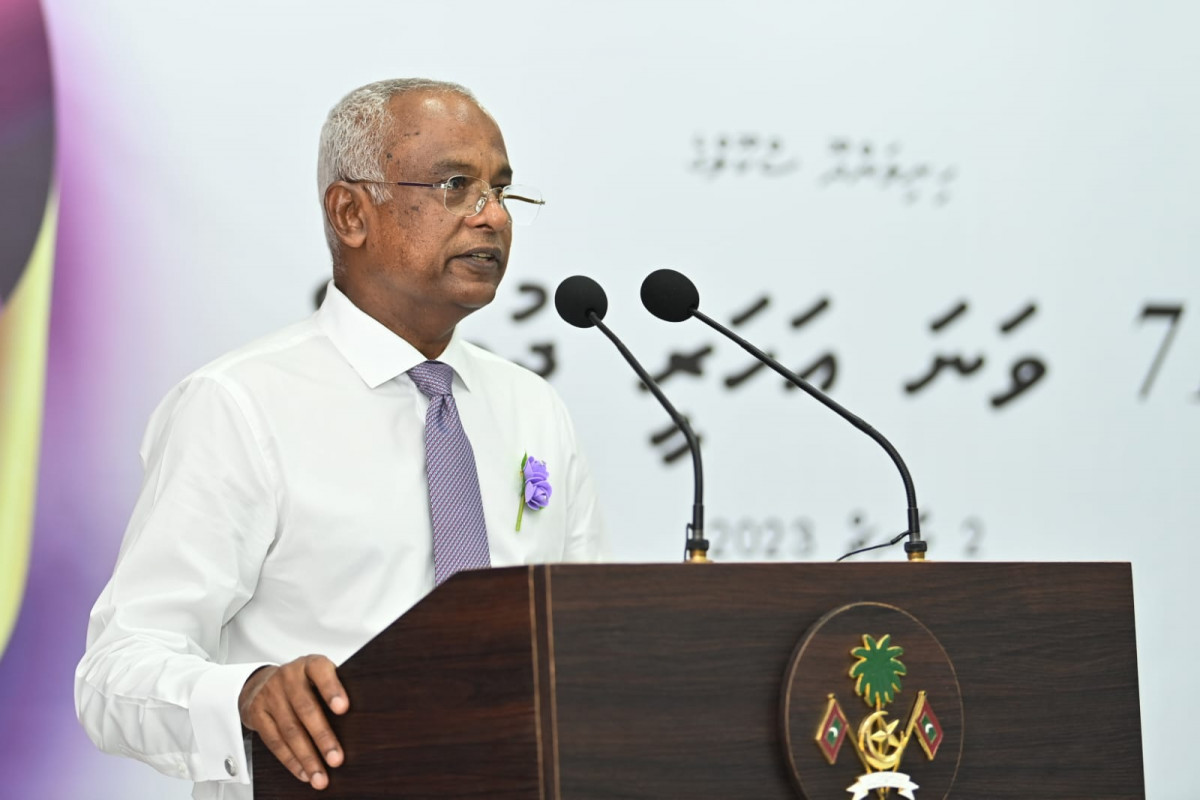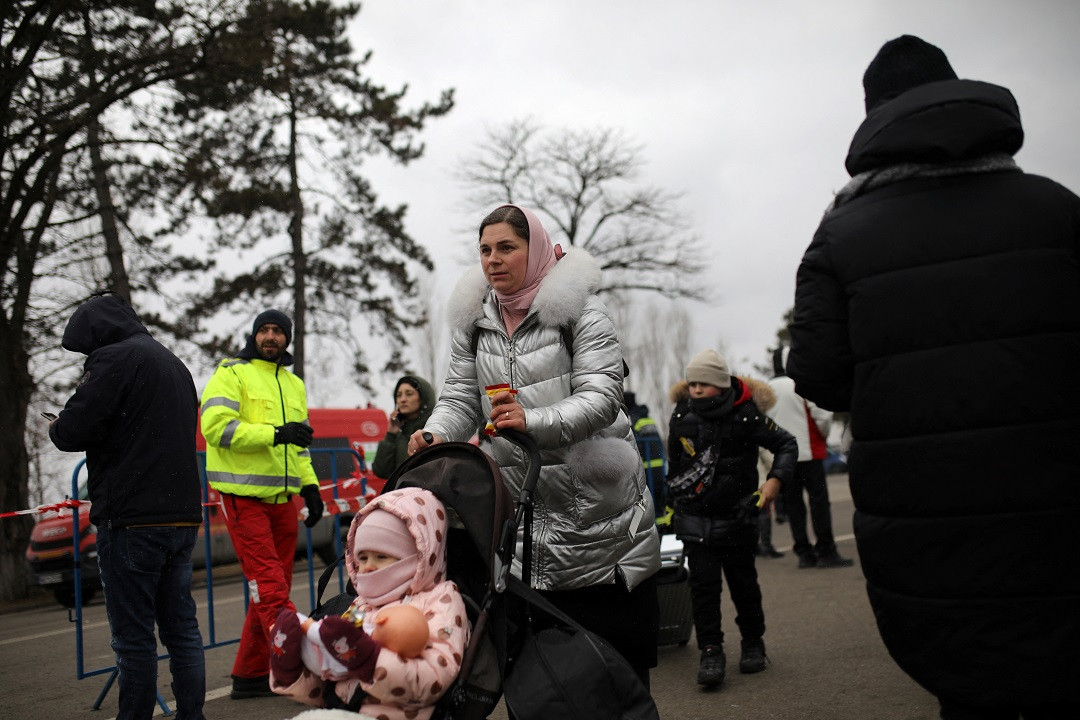"There is no guarantee of survival for any one nation in a world where Maldives ceases to exist"
"We are determined to not passively wait on the climate front"


President Ibrahim Mohamed Solih at the 76th session of UN General Assembly
There is no guarantee of survival for any one nation in a world where the Maldives ceases to exist, says President Ibrahim Mohamed Solih.
Delivering his General Debate Statement at the 76th session of the United Nations General Assembly (UNGA) on Tuesday, President Solih stated that the Maldives aspires to be more than another cautionary tale of “what happens when nature and the destructive forces she can unleash are not respected”.
Stressing that there is “overwhelming” scientific evidence that the climate emergency will be “catastrophic” to all of humanity, President Solih stated that the report published by the Intergovernmental Panel on Climate Change weeks ago, was a “shocking” reiteration of what we have been aware of for too long.
Warning that the reality of climate change has been “merely” brushed off for far too long, the president shed light on one important aspect of the report, which is that the past five years have been the hottest on record since records started in the mid-19th century. Within this period, the rate of sea-level rise had tripled in comparison to 1901 – 1970.
Maldivians commonly toss around phrases such as “existential threat”, “cease to exist”, “climate vulnerability”, “risk of disappearing”, “loss of identity”, “ecological refugees”, to describe the plight of Maldivians and other island states stand to face if the current trends continue.
Solih noted that the difference between 1.5 degrees and 2 degrees is “a death sentence” for the Maldives, adding that the state of envrionemental ruin small island states endure presently will catch up with bigger nations sooner or later, “without a doubt”.
The Maldivian president also presented the UNGA with letters penned by young Maldivian children pleading the president to share the global climate with the 76th UNGA.
Further, Solih noted that a break from the uninspiring business as usual practices that currently dominate the global climate change regime is required to address the climate emergency. It also requires countries worldwide to adopt “more stringent” measures to halt their emissions and requires wealthier countries to extend a helping hand to smaller nations to acquire support in the form of capacity building, technology transfers and financial resources to ramp up their defenses in the climate battle.
The president went on to urge the globe to give up its addiction to fossil fuels and to adopt cleaner, smarter technologies for energy use.






